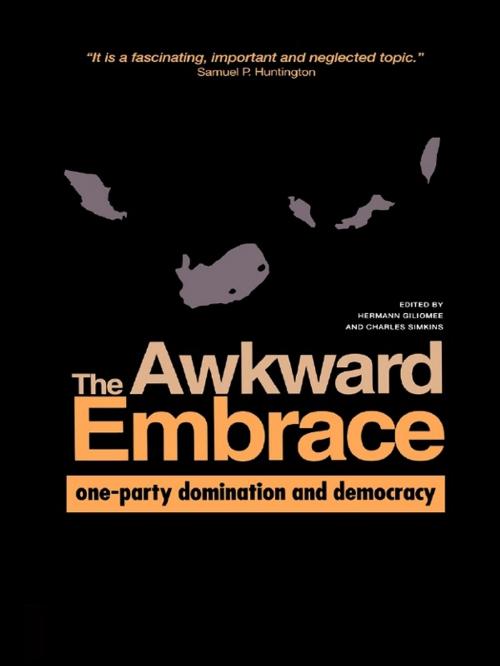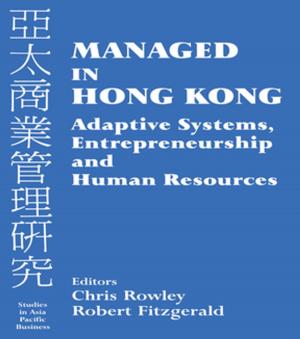The Awkward Embrace
One-Part Domination and Democracy in Industrialising Countries
Nonfiction, Social & Cultural Studies, Political Science| Author: | Hermann Giliomee, Charles Simkins | ISBN: | 9781135297169 |
| Publisher: | Taylor and Francis | Publication: | August 8, 2005 |
| Imprint: | Routledge | Language: | English |
| Author: | Hermann Giliomee, Charles Simkins |
| ISBN: | 9781135297169 |
| Publisher: | Taylor and Francis |
| Publication: | August 8, 2005 |
| Imprint: | Routledge |
| Language: | English |
Democracies derive their resilience and vitality from the fact that the rule of a particular majority is usually only of a temporary nature. By looking at four case-studies, The Awkward Embrace studies democracies of a different kind; rule by a dominant party which is virtually immune from defeat. Such systems have been called Regnant or or Uncommon Democracies. They are characterized by distinctive features: the staging of unfree or corrupt elections; the blurring of the lines between government, the ruling party and the state; the introduction of a national project which is seen to be above politics; and the erosion of civil society.
This book addresses major issues such as why one such democracy, namely Taiwan, has been moving in the direction of a more competitive system; how economic crises such as the present one in Mexico can transform the system; how government-business relations in Malaysia are affecting the base of the dominant party; and whether South Africa will become a one-party dominant system.
Democracies derive their resilience and vitality from the fact that the rule of a particular majority is usually only of a temporary nature. By looking at four case-studies, The Awkward Embrace studies democracies of a different kind; rule by a dominant party which is virtually immune from defeat. Such systems have been called Regnant or or Uncommon Democracies. They are characterized by distinctive features: the staging of unfree or corrupt elections; the blurring of the lines between government, the ruling party and the state; the introduction of a national project which is seen to be above politics; and the erosion of civil society.
This book addresses major issues such as why one such democracy, namely Taiwan, has been moving in the direction of a more competitive system; how economic crises such as the present one in Mexico can transform the system; how government-business relations in Malaysia are affecting the base of the dominant party; and whether South Africa will become a one-party dominant system.















